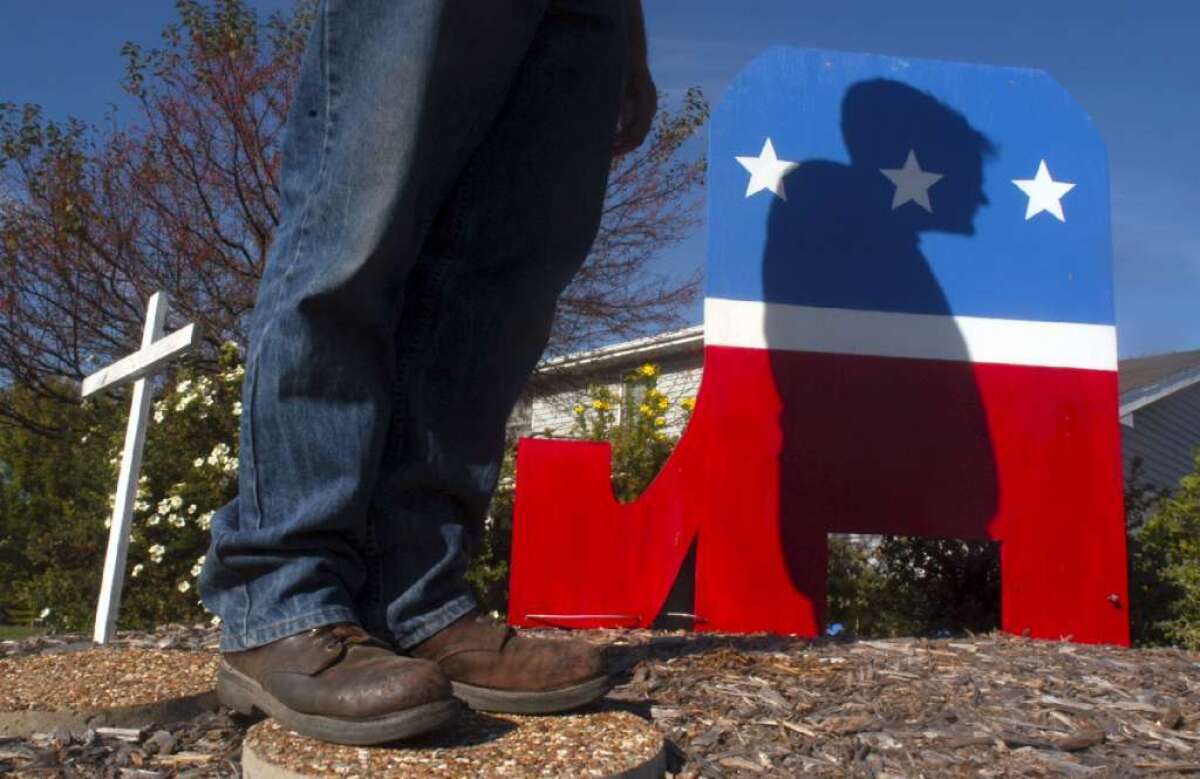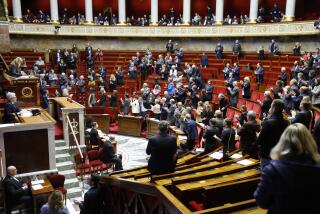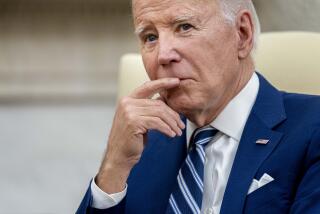Do conservatives die sooner than liberals? New study weighs in

If you’re dead serious about politics, consider this: A new paper finds that people with conservative ideologies were more likely to die in the study period than their liberal peers.
The findings, published by the Journal of Epidemiology & Community Health, offer a new view into the complex relationship between political identity and health.
Some studies have found that conservatives appear to be healthier than liberals; others have found that Republicans are less likely to report being in poor health than Democrats. But such papers typically didn’t look at both political party affiliation and political ideology, said lead author Roman Pabayo, a social epidemiologist who did the research while at Harvard and is now at the University of Nevada, Reno.
“Previous studies have only looked at one or the other,” Pabayo said. “I wanted to see if there was a relationship between those two.”
Many earlier studies also look at self-rated health, which Pabayo said was a potentially subjective measure. So Pabayo and his colleagues looked at a more certain one: death rates.
The researchers at the Harvard School of Public Health and the Columbia University Mailman School of Public Health examined data from 32,830 people who had participated in the General Social Survey-National Death Index between 1976 and 2008. The scientists looked at the participants’ political party affiliation (Democrat, Independent, Republican) as well as political ideology (liberal, moderate, conservative). They checked to see whether participants had died by Dec. 31, 2008. They adjusted for age, gender, ethnicity, income, region of residence and what setting they lived in (urban, suburban or rural).
Based on the 28.2% of participants who had died during follow-up, the scientists found that, for the most part, political partly affiliation didn’t matter all that much between the two rival parties, although Independents were less likely to die than Democrats.
“With political party affiliation, I was surprised that being independent was protective, in a way,” Pabayo said. “I did expect Republicans to live longer.”
Political ideology, on the other hand, seemed to paint a different picture. Conservatives and moderates were both about 6% more likely to die in the study period than liberals were.
But the results elicited some criticism from Subu V. Subramanian, a social epidemiologist at Harvard University who was not involved in the study.
“I have some skepticism around the paper, and one of [the issues] is, can they really tease out this distinction between ideology and affiliation?” Subramanian said.
He also said it would have been useful to have a three-by-three table mapping out the overlap between affiliation and ideology. For example, how many Democrats were actually conservative, how many Republicans were moderates, how many Independents were liberal, etc.
“The results are somewhat inconsistent ... and also the mortality effect seems very small,” he added.
Subramanian also argued that self-reported health had been shown in the research to be linked to death rates.
“I would not just dismiss self-rated health as a ‘subjective measure.’ It happens to be one of the strongest measures of your mortality,” he said.
In any case, there’s definitely no causal link here, Subramanian said -- being liberal or conservative doesn’t directly affect health. But political affiliation and ideology could be markers for other underlying factors that might actually influence health, and it will take much more detailed data to figure out what those factors may be.
For example, Pabayo said, it would be useful to track whether people switch their party affiliation or ideology over time, and whether that’s linked to other changes, as well. And it would be useful to ask people more specific questions about their political beliefs, because on specific policy issues, people may not be as “liberal” or “conservative” as they think.
Follow @aminawrite on Twitter for more science news.







